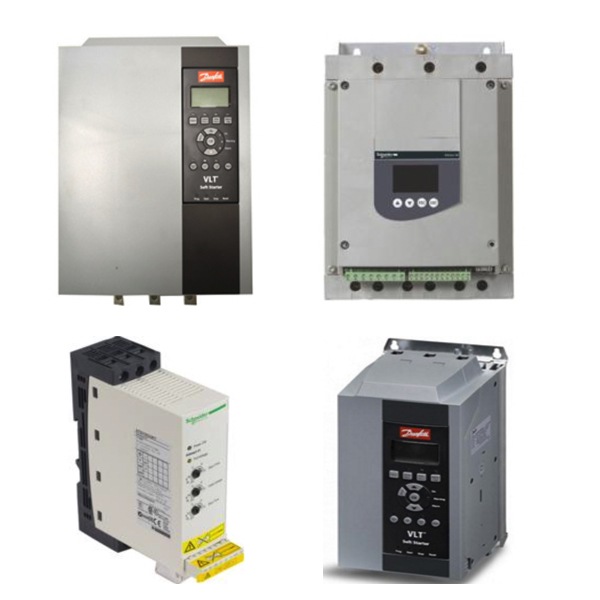Soft Starters

RSP Supply carries a complete line of soft starters engineered to deliver smooth motor start-up, reduce inrush current, and extend equipment life. Soft starters are essential for managing acceleration in three-phase motor systems, offering a cost-effective alternative to variable frequency drives (VFDs) when full-speed control isn’t required.
By gradually ramping up motor voltage, soft starters help prevent torque shock, mechanical stress, and electrical surges that can damage connected systems. Commonly used in pumps, compressors, conveyors, and HVAC equipment, these devices enhance reliability, improve energy efficiency, and reduce maintenance costs over time.
Many modern soft starter models also include built-in motor protection, such as overload monitoring, phase failure detection, and thermal safeguards. This makes them an ideal solution for industrial environments that demand long-term stability and consistent performance.
Soft Starters Overview
Soft starters are motor control devices designed to manage electric motor starts and stops. By gradually increasing and decreasing voltage, they reduce inrush current and mechanical stress that can occur during direct-on-line starting. This operation helps protect motors, connected equipment, and electrical systems from unnecessary strain. Soft starters are commonly used in industrial environments, such as pumps, fans, conveyors, compressors, and crushers where smooth acceleration and deceleration improve reliability. They are typically chosen for fixed-speed motor applications where simplicity, reduced wear, and improved system stability are more important than variable speed control
FAQs – Soft Starters
Q: What does a soft starter do?
A soft starter gradually increases voltage to the motor during start-up, reducing inrush current and mechanical stress for smoother acceleration and extended equipment life.
Q: How does a soft starter differ from a VFD?
A soft starter controls voltage only during motor start-up, while a VFD allows full speed control throughout operation. Soft starters are a simpler, lower-cost solution for fixed-speed motors.
Q: When is a soft starter the right choice for an industrial motor system?
A soft starter is suited for applications where motors operate at a constant speed but require controlled starting and stopping. They are commonly selected for systems where limited startup current, minimizing torque shock, and improving overall equipment reliability are priorities without the need for ongoing speed control.
Q: Which brands of soft starters does RSP Supply carry?
RSP Supply offers soft starters from top manufacturers including ABB, Benshaw, Danfoss, Eaton, NAE, and Schneider Electric, ensuring reliable motor control solutions for every industrial, commercial, and HVAC application.
Q: Do soft starters include motor protection features?
Yes. Many models include overload, phase loss, and thermal protection, ensuring stable and safe motor operation under varying load conditions.
Why Buy Soft Starters from RSP Supply
When you purchase soft starters from RSP Supply, you’re choosing quality, reliability, and expertise. We stock a wide selection of soft starters designed for industrial, commercial, and HVAC applications, all engineered to provide smooth motor acceleration and reduced electrical stress. Our knowledgeable team can help you choose the ideal model for your voltage, horsepower, and application requirements.
At RSP Supply, we only partner with trusted manufacturers to ensure every product meets the highest performance standards. With our combination of competitive pricing, fast shipping, and dedicated support, you can count on RSP Supply to provide dependable motor control solutions that help your systems run more efficiently and safely.

